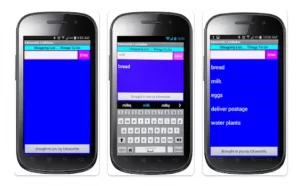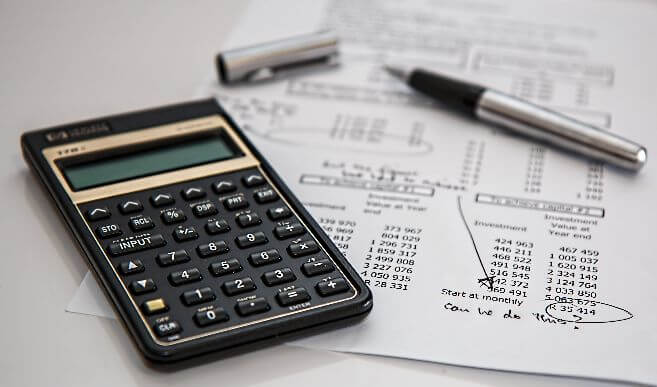Your guide to Making Budgeting Easier
Financial literacy is also a very important part of basic education. Especially when the cost of living is increasing, it is essential to budget your income and expenses. In this article, we’ll look at a few tips that might help with making budgeting easier and how to budget for your weekly shopping.
Weekly Income
All information is based on “per week” unless specified otherwise.
Most people’s income is reasonably fixed so you will always know how much you will have to spend from week to week from your household income.
Make a list of all the fixed payments you need to take from your income each week:
- Mortgage/Rent
- Rates
- Telephone /Mobile
- Power
- Internet/Data
- Water
- Travel
- Hire Purchase
- Debt Repayments
Most of these bills are not paid each week so you need to work out how much it would be if they were.
Calculations:
Monthly bills – find your highest one to work with. Multiply it by 12 then divide the answer by 52 to find how much it is per week.
(eg. $80 x 12 = $960 ÷ 52 = $18.46)
6 monthly – divide it by 26 to find the weekly figure.
Yearly – divide it by 52 to find the weekly figure.
You must put these amounts to one side each week before each bill is due.
Total each of these items and deduct the full amount from your weekly income.
What is left over is your disposable income.
Ensure that you do not use the money needed to pay these bills for anything else.
Now you can work out your weekly shopping list.
Budgeting for Shopping
All information is based on “per week” unless specified otherwise.
After working out your disposable income from the budgeting exercise you will now know how much you have to spend on your weekly shopping.
Write down a list of all of your family’s favourite and regular meals.
Write out a complete list of the ingredients you would need to make each of these meals – your own family meal recipe book.
Before doing your shopping, write down a menu of all the meals (including lunches and breakfasts and drinks) for the next week.
From the menu, write down the ingredients you would need to make each of these meals. Check your pantry, fridge and freezer for what you already have. Many people buy things they already have so this is an essential check in order to keep your spending down. Make a separate list for each of the food groups:
- Meat
- Fresh vegetables and fruit
- Spices and condiments (salt, flour, sugar, herbs, oil, sauce)
- General items (from baked beans to detergent)
Make a list of “other” items you will also need for the week like toiletries, rubbish bags/tags, and cleaning material.
Download our free Android App: List Maker

Looking for specials
Look through all the ‘specials’ flyers from your mailbox (these days you can subscribe to the mailers from your local shops online and have them delivered to your inbox each week) and note the prices next to the items on your list with the name of the shop next to it. NOTE: A good exercise is to go around your local shops or supermarket and write down or take a picture from your phone of the lowest standard price for each item (usually, but not always, the “unbranded” or store-branded products like ‘Basics’, ‘Budget’, etc.) so you will have an idea of the prices you can expect to pay.
Don’t pay attention to TV adverts about specials and savings you can make between stores. I have personally proven that many of these can be misleading. Especially ignore the adverts that show a full shopping cart from one store at one total price and then buying the same load of shopping at another. Why? Because it depends on what items were bought. Only compare the items that you would buy and be careful about branded comparisons when a “store brand” can be cheaper.
Make a separate list of all the items you know you will have to buy individually throughout the week such as bread and total up this list for inclusion in your grand total. After pricing every item, rewrite your shopping lists as per each store you will buy them from and then total the cost on each list and then add up all the totals to reach your expected grand total for the week.
Compare this total with how much you know you can spend from your disposable income. If you are over budget, adjust one or more of the meals on your weekly menu to suit so that you will not overspend. Something to note is that if you wanted a roast chicken as one of your meals but you know that chicken is not on special that week, don’t buy it – save that for another week when it is on special. Conversely, if you are under budget and a frozen chicken (for example) is on special one week, buy it and freeze it for another week.
Talking about chicken: Never buy the pre-cooked type. It may seem convenient but most times you can buy a larger, fresh or frozen chicken for half the price!
Ok, you are ready to go shopping. Remember that you listed your spices and condiments on a separate sheet? That’s because all of these can usually be purchased at a lower cost from a “bulk” shop – look around. If these shops are not available, compare the prices and sizes of the packets. Don’t forget to take your lists with you and still compare the prices on the shelves to yours on your list as you go around – there may be one cheaper that you have overlooked.
NOTE: If your disposable income will still not be enough to live on you may need to seek additional budgeting advice and you may even be entitled to assistance from social services (for example: Work and Income in New Zealand) or through the Community Services Card even if you are working. Don’t be afraid to ask! There are even many places that help with food parcels if you are in need. It is better to be healthy that to be proud and hungry.
Need to save on your water bill? Fill a jar or old soft-drink bottle with water and put it inside your toilet cistern – you’ll save around a litre per flush! When you go for a shower, wet yourself down and then turn the shower off. Soap down and wash and then turn the shower back on to wash the soap off. Do this when you wash your hair as well – you will save water.
Need to learn some basic maths? We have a great course for you! Please take a look at our Maths Course.
If you have any tips on budgeting, feel free to discuss them in the comments!



